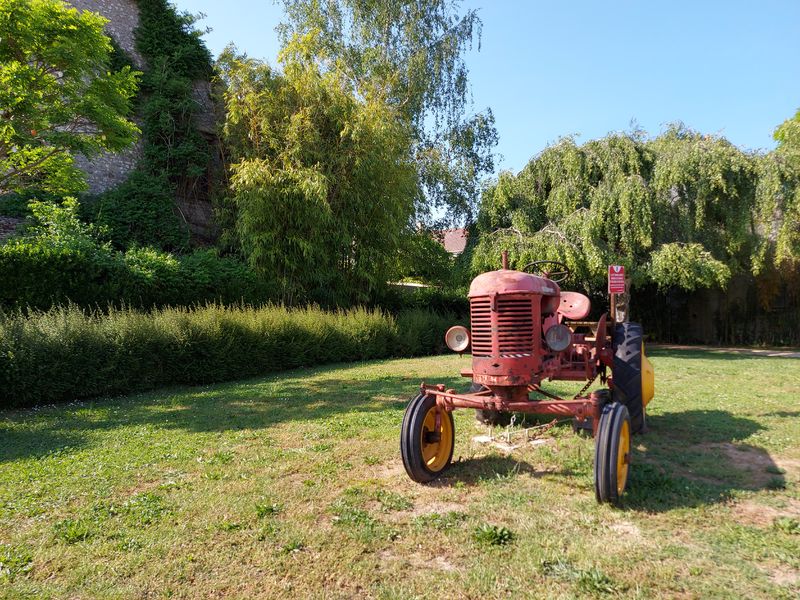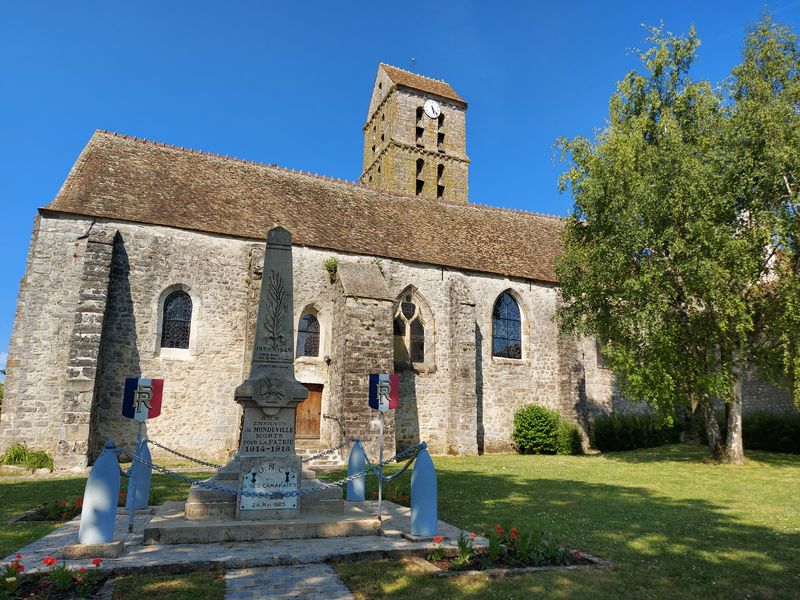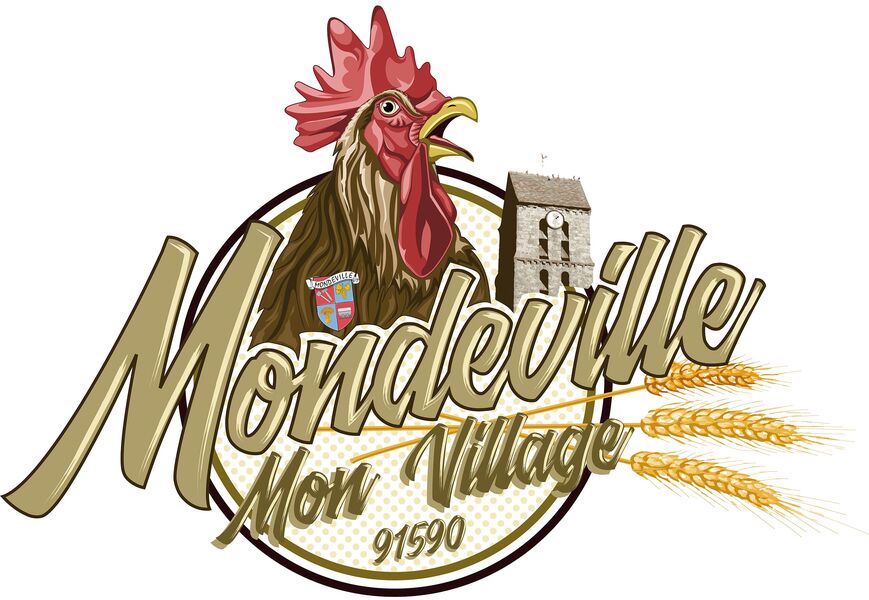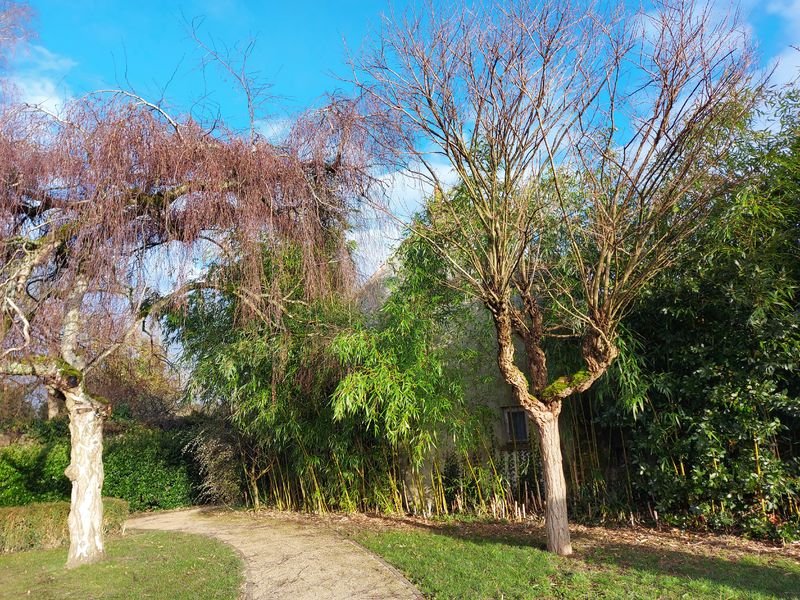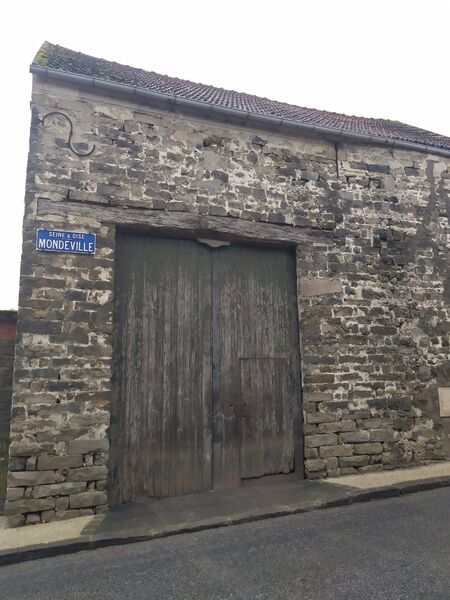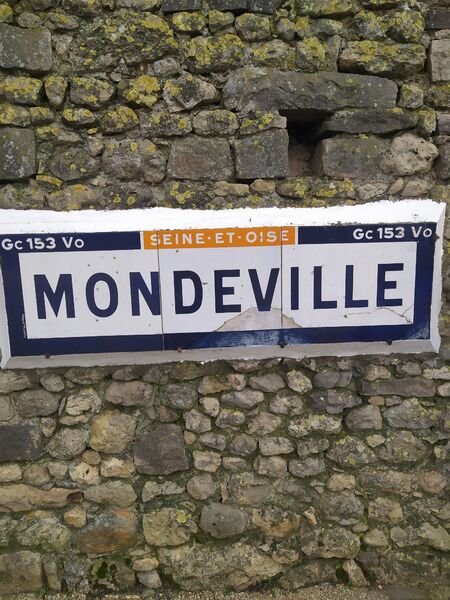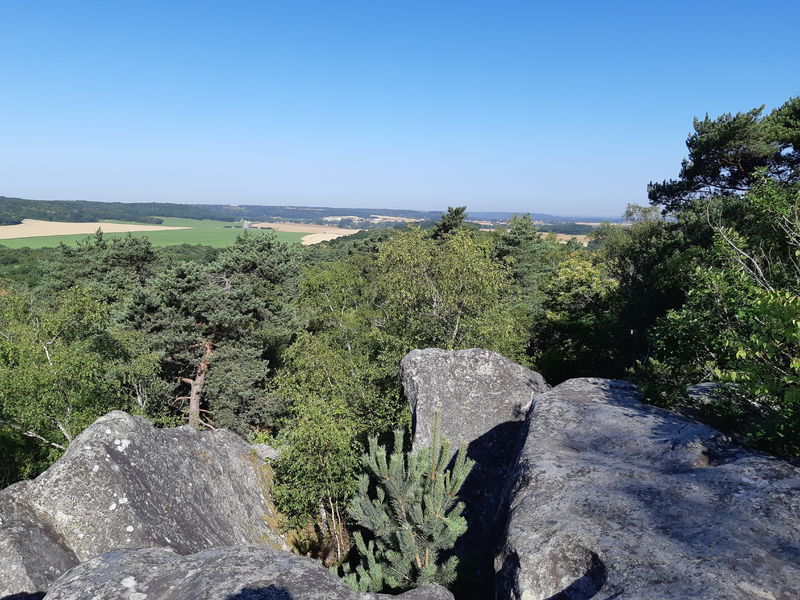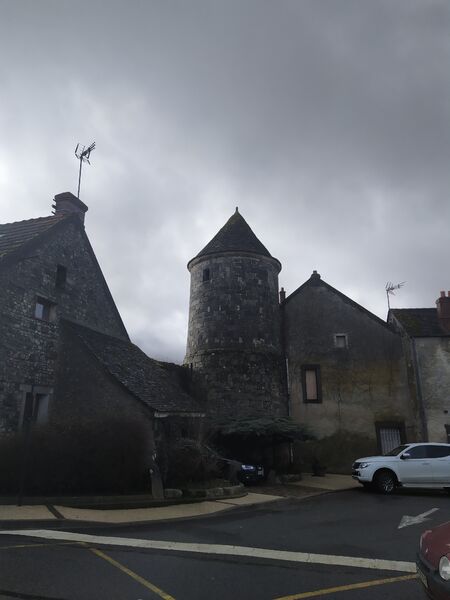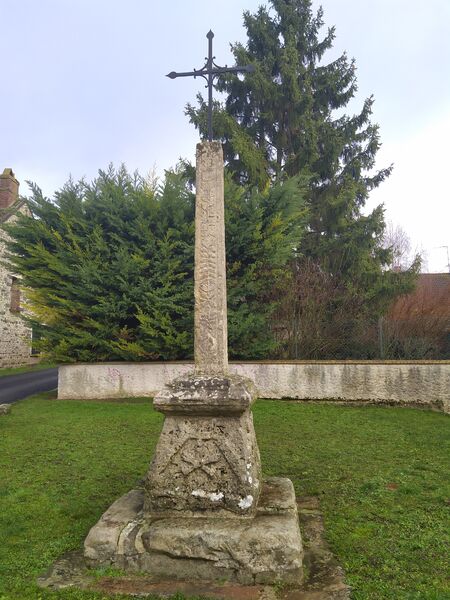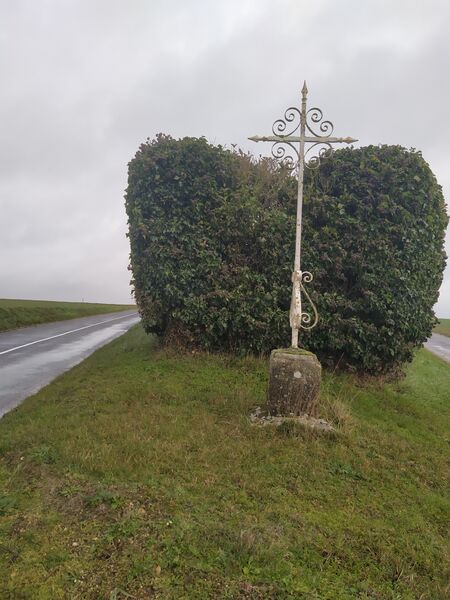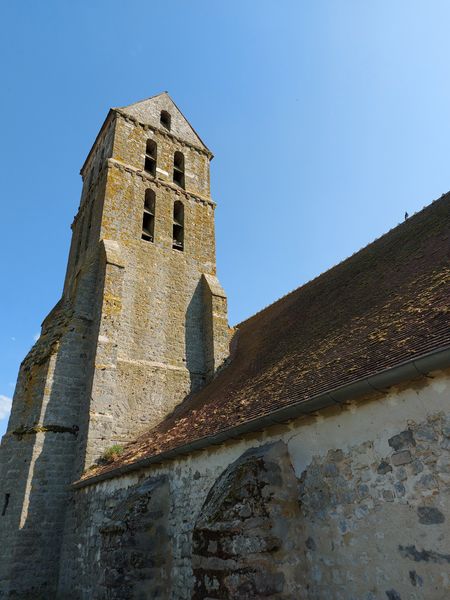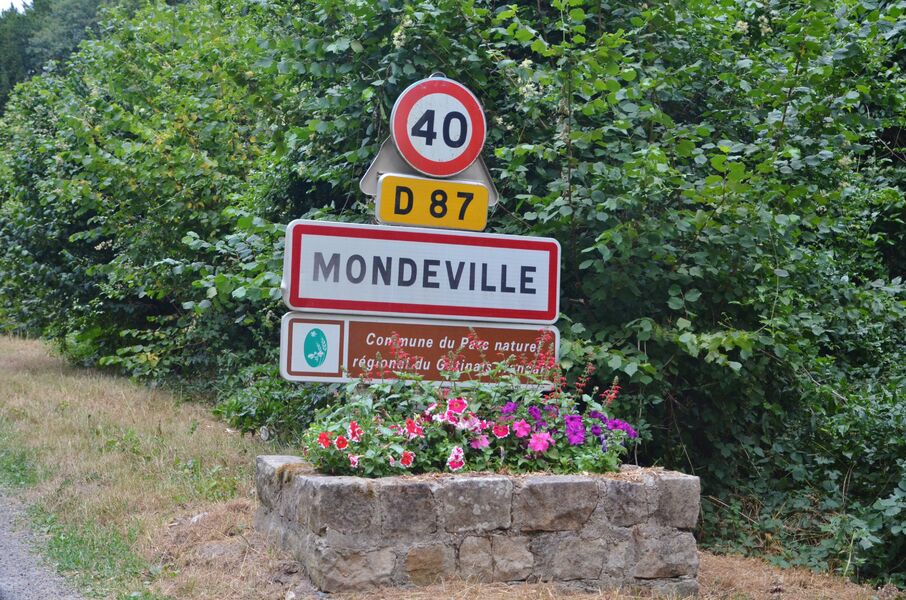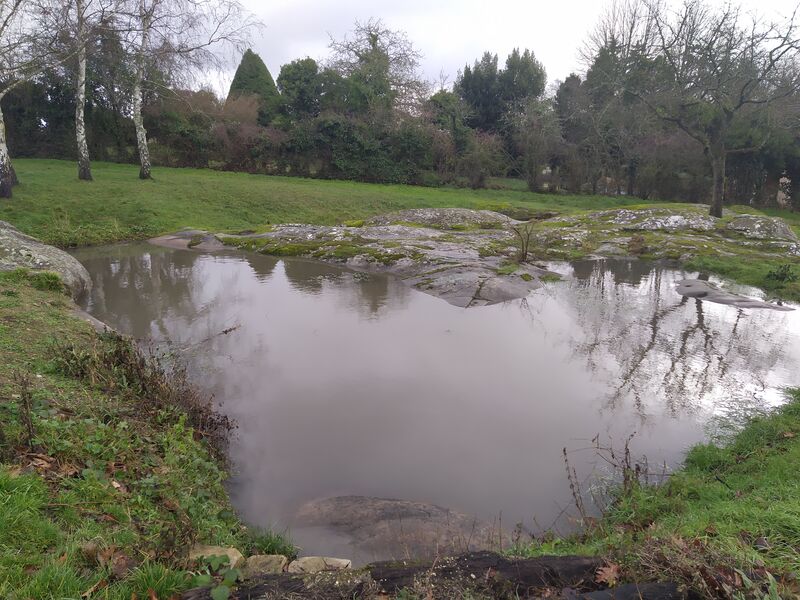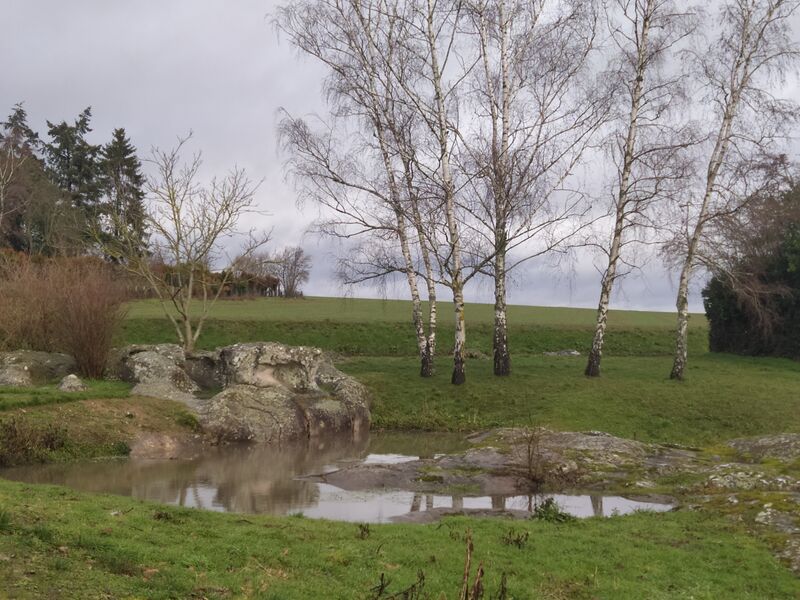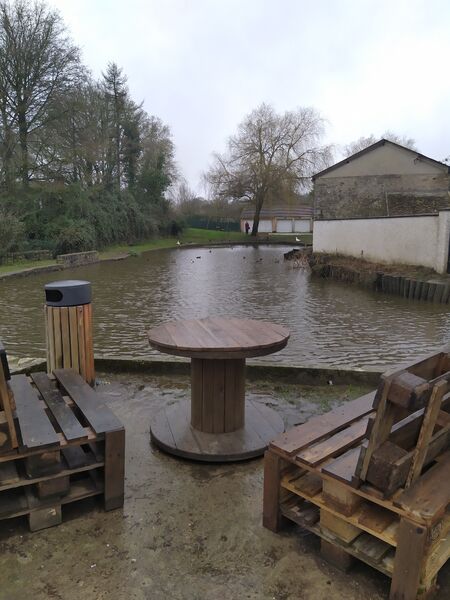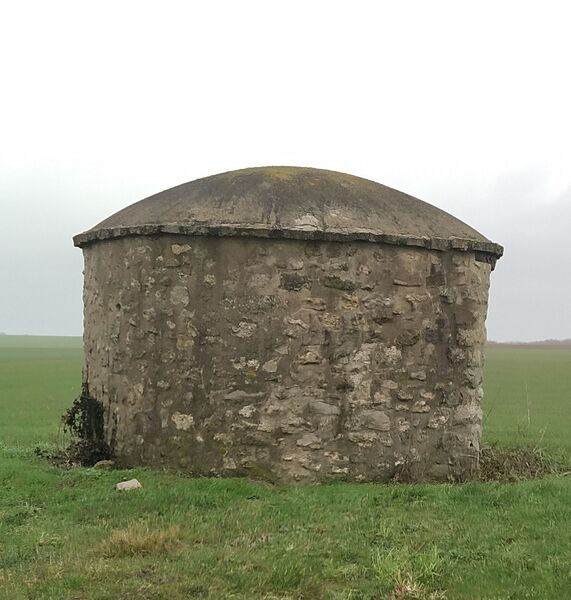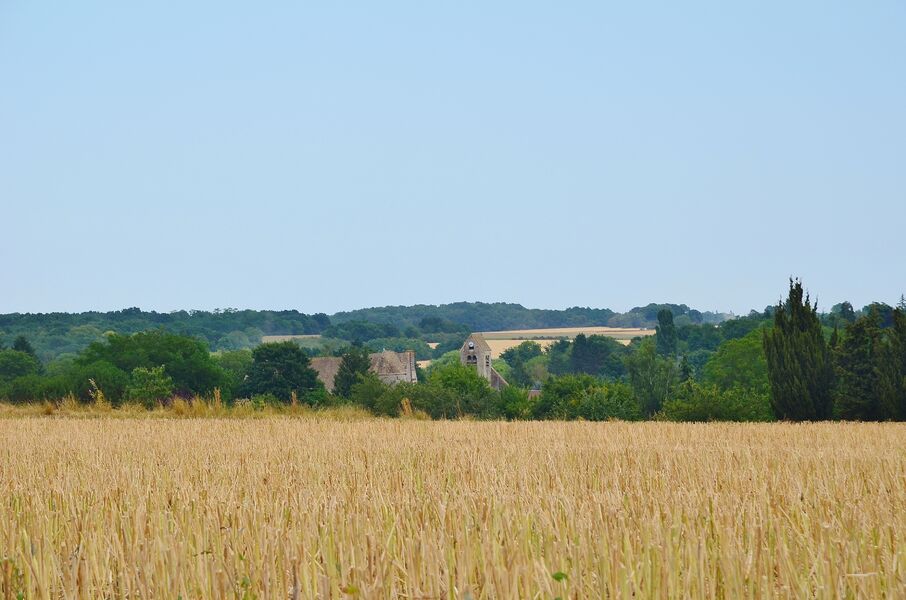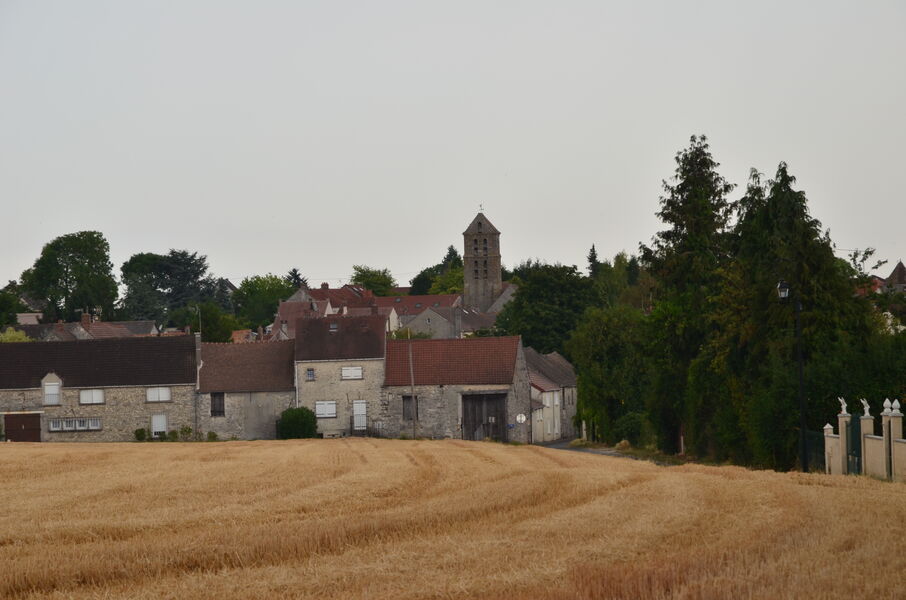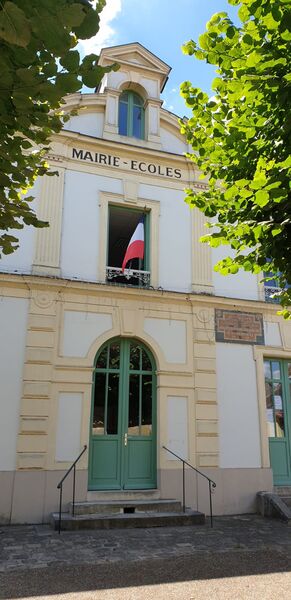Mondeville
Mondeville
Patrimoine_culturel
The village of Mondeville is located in the middle of a plateau and is surprisingly not crossed by any river. It is a quiet village which had for a long time an agricultural vocation. Nowadays, the village has a varied heritage that is a testimony of its rich history.
-------------
HISTORY
The origins of the name “Mondeville'' are uncertain. It could come from the Latin expression “villa in monte” which means “mountain’s farm”. It also could come from the German name of Mundo which was later latinized as Mundus and the medieval suffix of “-ville” was then added, so that it would mean “the rural estate of Mundo”.
The village belonged for a time to the estate of marquis de Villeroy. The house Neufville de Villeroy gave birth to numerous important persons of the French History : bishops, marshalls, counsellors or knights.
-------------
HERITAGE
The Church of Saint-Martin
The building of the church lasted for several centuries between the 12th and 15th centuries.Several traces of those changes can be seen inside the church : holes, different capitals adorned with foliages, statues of saints,...
The nave and the choir are separated by a grid. The choir is covered in colourful frescoes that were created at the end of the 19th century. In 2003, an underlying decoration was found, it is a fresco representing different characters.
The church was classified as part of the Monuments Historiques in 1972. Those last years, a lot of restoration was made in order to maintain the church’s beauty. The dial, stained glass windows and clock were all restored.
++++
The Farm des Dames de Port-Royal
The farm we can still see nowadays was part of a Cistercian abbey. It was built, just like the church, as soon as the 12th century, then, it was used until the French Revolution. It was flanked by four towers, but today, only one is still standing. It can be seen in the center of the village. Also, an old bread oven from the 14th century can be seen too. The farm was divided into several houses. The farm was once used as a prison.
++++
The Wayside Crosses
Mondeville has several wayside crosses that can be seen. They used to be placed at the crossroads of roads in order to help people to locate themselves, especially during religious processions. It was also used to evangelize places and was a symbol for protection. Two crosses can be seen :
The Croix Rouge is located at the crossroads of la Grande Rue and le Chemin de la Croix Rouge in the center of the village. This beautiful historical cross has been classified as part of the Monuments Historiques since 1969.
The Croix de la Bascule is located at the crossroads of la Route de Noisement and the D153 in the North of the village. On its pedestal it is engraved the words “Nivellement général, Alt 148m”.
In the village, several old stones can be seen with “PR” or “DV” engraving. In the past, they were used to distinguish the estates of des Dames de Port-Royal and those belonging to the estate de Villeroy.
++++
The Pond de la Platière de Grès
A sandy pond is a very curious geologic formation. Indeed, its origins can be traced back to when the Parisian Bassin used to be a sea millions of years ago. At the time, and then when the sea disappeared, a slab of sandstone appeared naturally because of the sand’s cementing. So, because of this, a lot of sandy ponds are located in the area.
The pond is located on a slab of sandstone, characterised by a steep slope South oriented and a bumpy surface. Those characteristics shaped some hollows where rains are collected which create a pond.
++++
The Pond de la Padôle
This pond is located in the locality of Hameau de la Padôle and is surrounded by houses of people who used to work in the quarries. This is also a sandy pond, which means that it has a natural sandy slab made of sandstone. The pond is filled with water thanks to rains and water runoff. If the pond is full, the water is pouring down in a ditch.
++++
The Forest of Mondeville
The forest surrounding Mondeville is deemed for its calm. It is a perfect place to hike with its numerous paths. This forest is full of mysteries with several original and hidden secrets :
The old sandstone quarry of Mondeville that is not used anymore. Nowadays, it is a private place that is not accessible to the public. It was used during the 19th and 20th century to produce pavements for Paris’ streets.
An old shelter used by people working in the quarries. They used to build shelters and even houses in the forest, close to the quarries. They were used to live, rest, stock materials and protect in case of bad weather.
An old sideroad crossing that was used by workers of the quarry to go to work and walk quickly in the forest.
The Painted Cave des Roches aux Dames is a cave from the Prehistoric era and is decorated with paintings representing humans and animals.
The Cave du Christ is also a cave decorated with engravings from the Prehistoric era.
++++
SOURCE: Mairie de Mondeville, “Dictionnaire Étymologique des Noms de Lieu en France” de Albert Dauzat et Charles Rostaing, Les Amis de Milly-en-Gâtinais et Environs, Parc Naturel Régional du Gâtinais Français
HISTORY
The origins of the name “Mondeville'' are uncertain. It could come from the Latin expression “villa in monte” which means “mountain’s farm”. It also could come from the German name of Mundo which was later latinized as Mundus and the medieval suffix of “-ville” was then added, so that it would mean “the rural estate of Mundo”.
The village belonged for a time to the estate of marquis de Villeroy. The house Neufville de Villeroy gave birth to numerous important persons of the French History : bishops, marshalls, counsellors or knights.
-------------
HERITAGE
The Church of Saint-Martin
The building of the church lasted for several centuries between the 12th and 15th centuries.Several traces of those changes can be seen inside the church : holes, different capitals adorned with foliages, statues of saints,...
The nave and the choir are separated by a grid. The choir is covered in colourful frescoes that were created at the end of the 19th century. In 2003, an underlying decoration was found, it is a fresco representing different characters.
The church was classified as part of the Monuments Historiques in 1972. Those last years, a lot of restoration was made in order to maintain the church’s beauty. The dial, stained glass windows and clock were all restored.
++++
The Farm des Dames de Port-Royal
The farm we can still see nowadays was part of a Cistercian abbey. It was built, just like the church, as soon as the 12th century, then, it was used until the French Revolution. It was flanked by four towers, but today, only one is still standing. It can be seen in the center of the village. Also, an old bread oven from the 14th century can be seen too. The farm was divided into several houses. The farm was once used as a prison.
++++
The Wayside Crosses
Mondeville has several wayside crosses that can be seen. They used to be placed at the crossroads of roads in order to help people to locate themselves, especially during religious processions. It was also used to evangelize places and was a symbol for protection. Two crosses can be seen :
The Croix Rouge is located at the crossroads of la Grande Rue and le Chemin de la Croix Rouge in the center of the village. This beautiful historical cross has been classified as part of the Monuments Historiques since 1969.
The Croix de la Bascule is located at the crossroads of la Route de Noisement and the D153 in the North of the village. On its pedestal it is engraved the words “Nivellement général, Alt 148m”.
In the village, several old stones can be seen with “PR” or “DV” engraving. In the past, they were used to distinguish the estates of des Dames de Port-Royal and those belonging to the estate de Villeroy.
++++
The Pond de la Platière de Grès
A sandy pond is a very curious geologic formation. Indeed, its origins can be traced back to when the Parisian Bassin used to be a sea millions of years ago. At the time, and then when the sea disappeared, a slab of sandstone appeared naturally because of the sand’s cementing. So, because of this, a lot of sandy ponds are located in the area.
The pond is located on a slab of sandstone, characterised by a steep slope South oriented and a bumpy surface. Those characteristics shaped some hollows where rains are collected which create a pond.
++++
The Pond de la Padôle
This pond is located in the locality of Hameau de la Padôle and is surrounded by houses of people who used to work in the quarries. This is also a sandy pond, which means that it has a natural sandy slab made of sandstone. The pond is filled with water thanks to rains and water runoff. If the pond is full, the water is pouring down in a ditch.
++++
The Forest of Mondeville
The forest surrounding Mondeville is deemed for its calm. It is a perfect place to hike with its numerous paths. This forest is full of mysteries with several original and hidden secrets :
The old sandstone quarry of Mondeville that is not used anymore. Nowadays, it is a private place that is not accessible to the public. It was used during the 19th and 20th century to produce pavements for Paris’ streets.
An old shelter used by people working in the quarries. They used to build shelters and even houses in the forest, close to the quarries. They were used to live, rest, stock materials and protect in case of bad weather.
An old sideroad crossing that was used by workers of the quarry to go to work and walk quickly in the forest.
The Painted Cave des Roches aux Dames is a cave from the Prehistoric era and is decorated with paintings representing humans and animals.
The Cave du Christ is also a cave decorated with engravings from the Prehistoric era.
++++
SOURCE: Mairie de Mondeville, “Dictionnaire Étymologique des Noms de Lieu en France” de Albert Dauzat et Charles Rostaing, Les Amis de Milly-en-Gâtinais et Environs, Parc Naturel Régional du Gâtinais Français
Prestations, conforts et services
- French


